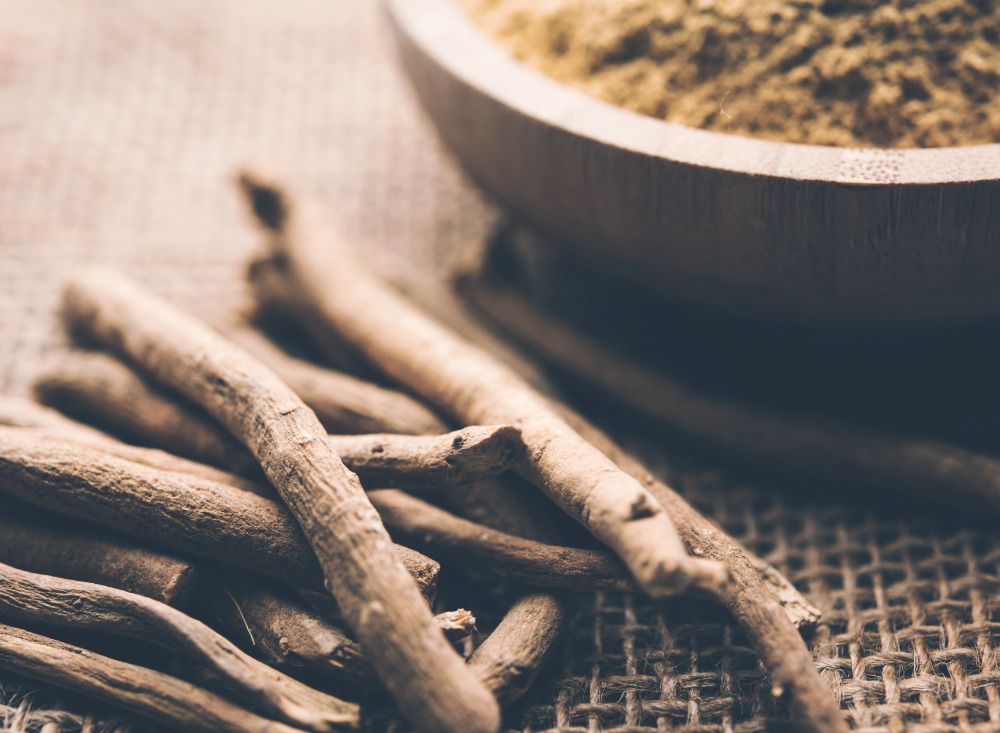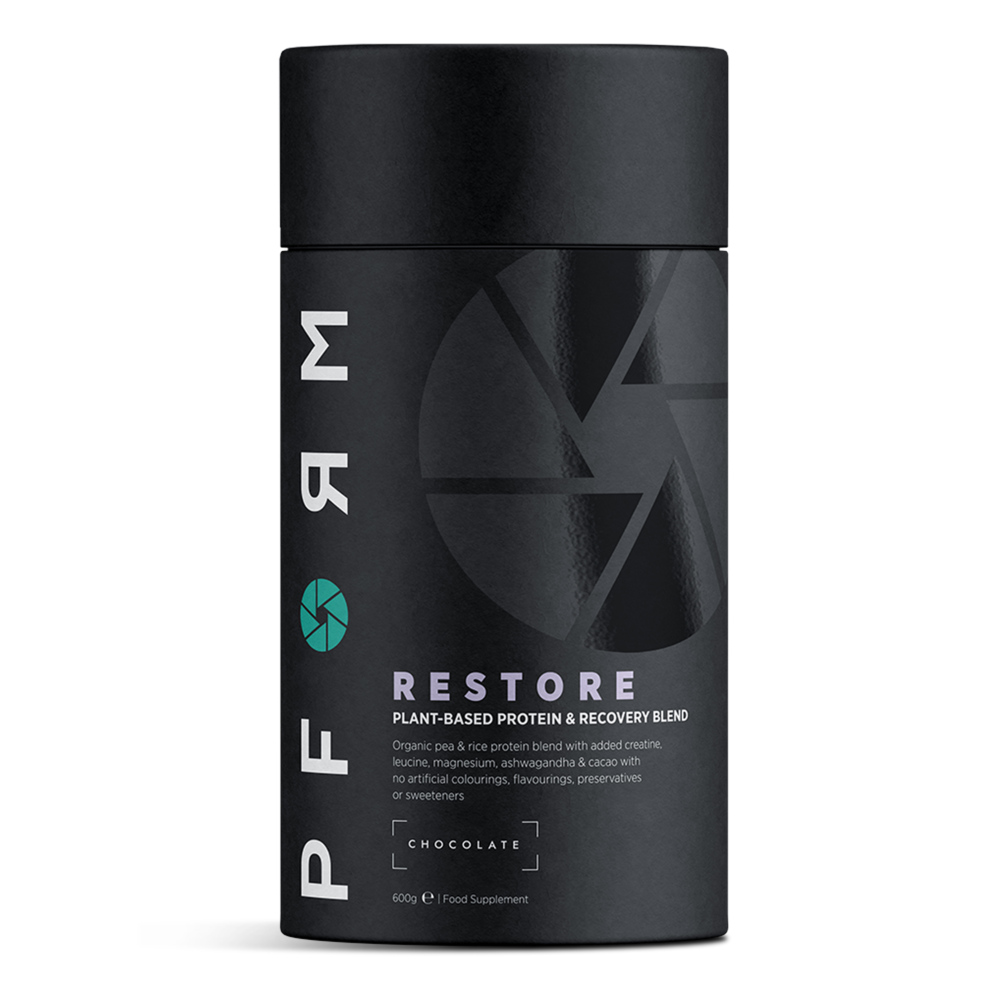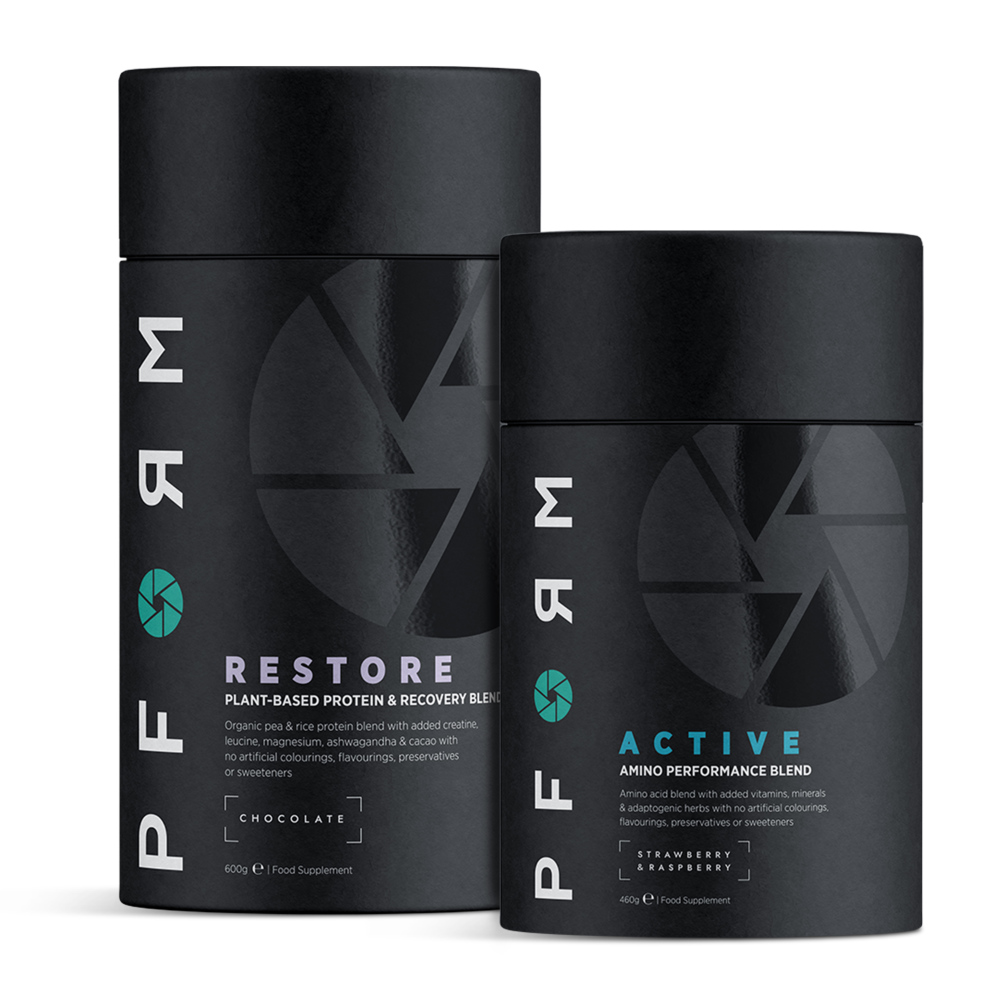
The health and performance benefits of Ashwagandha
Ashwagandha, a renowned Ayurverdic herb, has been widely recognised for its health promoting effects for many of thousands of years. This article describes the role of ashwagandha, how it may promote health, how it may benefit the exercise and recovery process and highlights why we have included Ashwagandha as one of the ingredients in PFORM Restore.
Introducing ashwagandha
One of the most widely revered adaptogens, ashwagandha is indicated to have a profound effect on the HPA axis (hypothalamic pituitary adrenal axis) which is the basis for the stress response. So, in effect, ashwagandha is recognised as a substance that modulates the stress response.
Quick definition – adaptogens: are nontoxic substances from plants that effectively regulate the stress response, assisting the body to functionally adapt during periods of intense physical or mental stress. They function to modulate the stress response, correcting imbalances in the neuroendocrine and immune systems, improving the stress response and enhancing performance.
Ashwagandha reduces levels of the stress hormone cortisol (1,2,3). Although stress can be a good thing, an overactive and chronic stress response can be detrimental, affecting the whole body and impairing health. For example, elevated levels of cortisol are associated with muscle breakdown and fat storage, low-grade inflammation, increased risk of cardiovascular disease, gastrointestinal dysfunction and appetite dysregulation, reduced libido and levels of sex hormones (testosterone, oestrogen), suppression of the immune system and impaired memory and cognitive capacity (4).
Over 75% of adults experience moderate to high levels of stress and reported levels of stress are currently on the increase (5). Athletes run the risk of being vulnerable to stress – think type A personality, work life stress + emotional stress + exercise stress = overload. Additionally, athletes undergoing a strenuous training schedule and/or overtraining may result in the body becoming stressed (6). Therefore, adaptogens such as ashwagandha may be particularly beneficial for the athlete to rebalance the stress response, improve the recovery process and optimise wellbeing and performance.
General benefits of ashwagandha…
Improved heart health
Ashwagandha may improve risk factors for cardiovascular disease, such as blood cholesterol levels and markers of inflammation (7).
Improved blood sugar (glucose) levels
Since high cortisol levels result in high blood glucose levels – and ashwagandha can reduce cortisol levels (1,2,3), ashwagandha may improve blood glucose levels.
Improved memory and cognitive function
Ashwagandha may boost memory and enhance overall mental functioning (8).
Male fertility
Ashwagandha may improve sperm count and fertility hormones in men, potentially via reducing oxidative stress (9,10).
Immune supporting
Ashwagandha may benefit inflammatory levels and enhance the activity of infection fighting cells (11,12).
How ashwagandha may enhance exercise and recovery
Decreased stress-induced damage
Exercise is a stressor. Although optimal doses of exercise stress is beneficial to health and performance, if it’s overdone, this may chronically elevate cortisol levels (13). Elevated cortisol levels may result not only from training, but in combination with other daily stressors, such as lack of sleep, work deadlines, family issues or lack of time. The combination of these micro stressors may result in a chronic stress response. In addition to the general negative health effects of elevated cortisol levels, for the athlete, breakdown of muscle, inhibition of testosterone, prevention of deep sleep/recovery, stimulation of fat storage and suppression of the immune system may be particularly detrimental to recovery and performance levels.
Supplementation with ashwagandha may substantially reduce cortisol levels and significantly lower perceptions of stress (1,2,3). Therefore, rebalancing cortisol levels may improve physical performance through optimisation of physiological functions (muscle strength, rest and recovery, fat burning, immune strength), as well as cognitive acuity.
Increased strength
Supplementation of ashwagandha may significantly increase muscle mass and strength (14,15). Ashwagandha may reduce muscle catabolism (breakdown) and prevent the inhibition of testosterone, through its impact on cortisol levels (1,2,3). Ashwagandha may also increase testosterone levels in males (16).
Improved endurance capacity
Ashwagandha may improve aerobic capacity and enhance sprint ability (17,18).
Balance inflammatory levels
The stress response modulates the inflammatory response, and assuming this is in moderation, everything is okay. However, if this goes into overdrive, then recovery time can be impaired. Ashwagandha may increase antioxidant defences, substances that can assist in inhibiting a proinflammatory response (19). Ashwagandha may decrease levels of inflammatory biomarkers, such as C-reactive protein (7), therefore potentially improving recovery time and performance capacities.
Introducing PFORM Restore
PFORM Restore has been formulated to support your recovery from exercise. Included in our formula is a 70/30 percentage split of organic pea and rice protein to provide a balanced and similar amino acid profile to that of whey protein. We have also added some leucine, organic cacao, and magnesium glycinate to help you restore optimal function as soon as possible after your training session.
In addition to this we included 500mg of a 10:1 extract of Ashwagandha, so equivalent to a 5gram dose of ashwagandha. 500mg of a 10:1 extract or a 5grams root powder dose is where you will find the most robust evidence for the benefits of Ashwagandha as outlined in this article above.
We pride ourselves on formulating products with the best ingredients that are scientifically validated at the dosages that we have included in the product.
Related Products
References
- Salve et al. (2019). Adaptogenic and anxiolytic effects of Ashwagandha root extract in healthy adults: a double-blind randomised, placebo controlled clinical study.
- Mahdi et al. (2009). Withania somnifera improves semen quality in stress-related male fertility.
- Chandrasekhar et al. (2012). A prospective, randomised double-blind, placebo-controlled study of safety and efficacy of a high-concentration full-spectrum extract of ashwagandha root in reducing stress and anxiety in adults.
- Yaribeygi et al. (2017). The impact of stress on body function: a review.
- Mentalhealth.org.uk
- Angeli et al. (2014). The overtraining syndrome in athletes: a stress-related disorder.
- Auddy et al. (2008). A standardised Withania Somnifera extract significantly reduces stress-related parameters in chronically stressed humans: a double-blind randomised placebo-controlled study.
- Choudhary et al. (2017). Efficacy and safety of ashwagandha (Withania somnifera (L.) (Dunal) root extract in improving memory and cognitive functions.
- Ahmad et al. (2010). Withania somnifera improves semen quality by regulating reproductive hormone levels and oxidative stress in seminal plasma of infertile mates.
- Mahdi et al. (2009). Withania somnifera improves semen quality in stress-related male fertility.
- Samadi et al. (2015). Protective effects of Withania somnifera root on inflammatory markers and insulin resistance in fructose-fed rats.
- Bhat et al. (2009). In vivo enhancement of natural killer cell activity through tea fortified with Ayurverdic herbs.
- Sklouda et al. (2011). Elevated hair cortisol concentrations in endurance athletes.
- Wankhede et al. (2015). Examining the effect of Withania somnifera supplementation on muscle strength and recovery: a randomised controlled trial.
- Ziegenfuss et al (2018). Effects of an Aqueous Extract of Withania somnifera on strength training adaptations and recovery: the STAR trial.
- Lopresti et al. (2019) An investigation into the stress-relieving and pharmacological actions of an ashwagandha (Withania somnifera) extract: a randomised double-blind placebo-controlled study.
- Sandhu et al. (2010). Effects of Withania somnifera (Ashwagandha) and Terminalia arjuna (Arjuna) on physical performance and cardiorespiratory endurance in healthy young adults.
- Choudhary et al. (2015). Efficacy of Ashwagandha (Withania somnifera Dunal) in improving cardiorespiratory endurance in healthy athletic adults.
- Kour et al. (2009). Restoration of stress-induced altered T cell function and corresponding cytokines patterns by Withanolide A.
- Singh et al. (2011). An overview on ashwagandha: a Rasayana (rejuvenator) of Ayurveda.


















